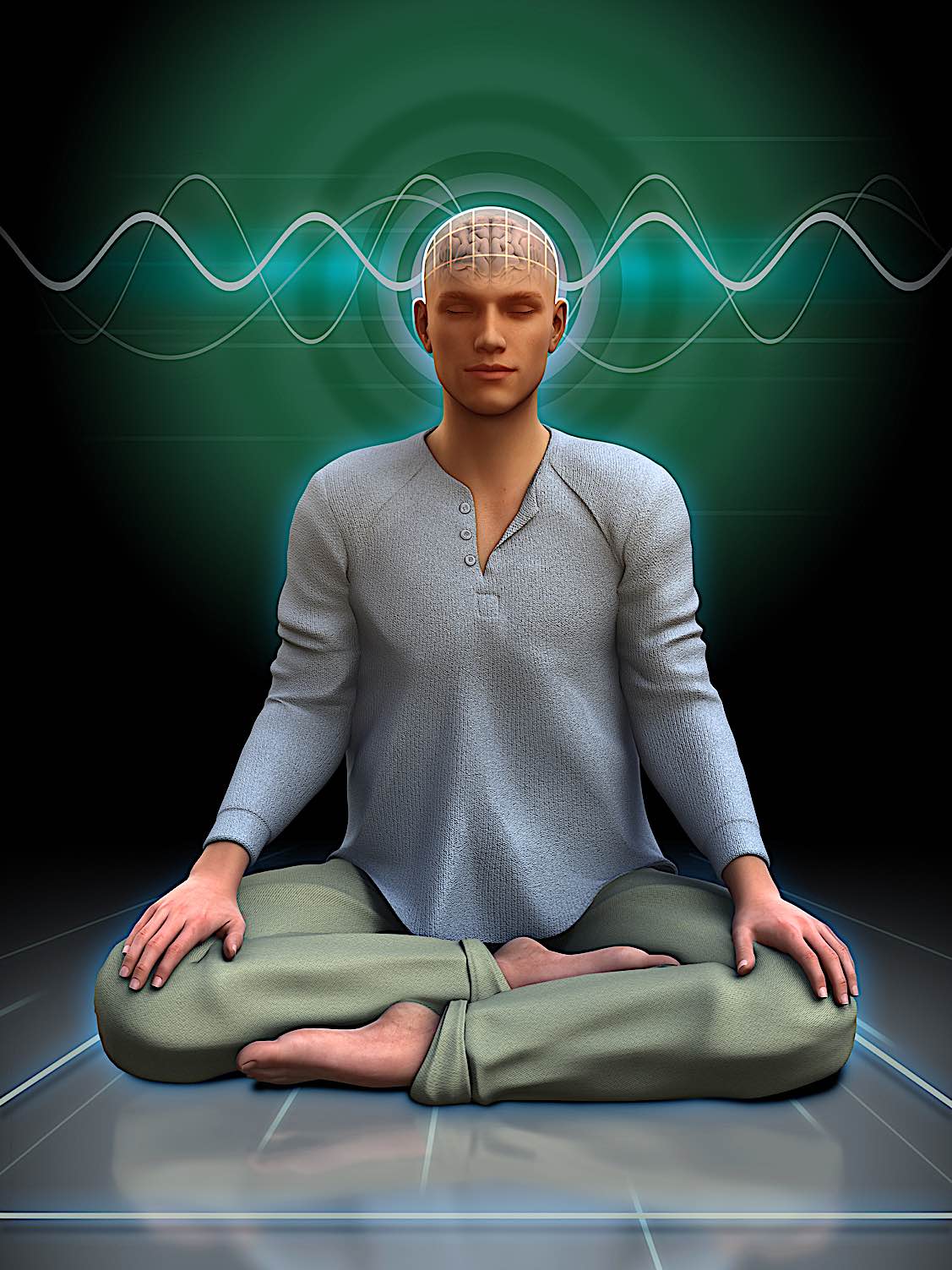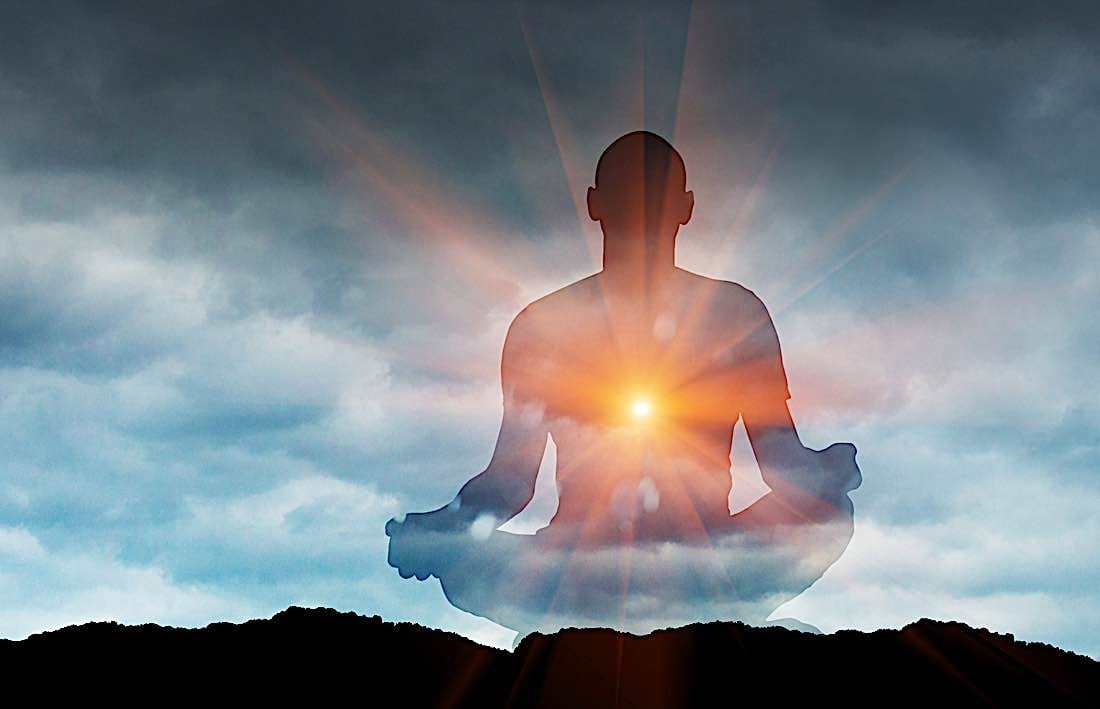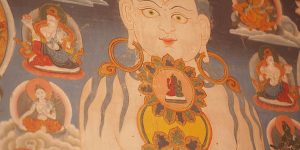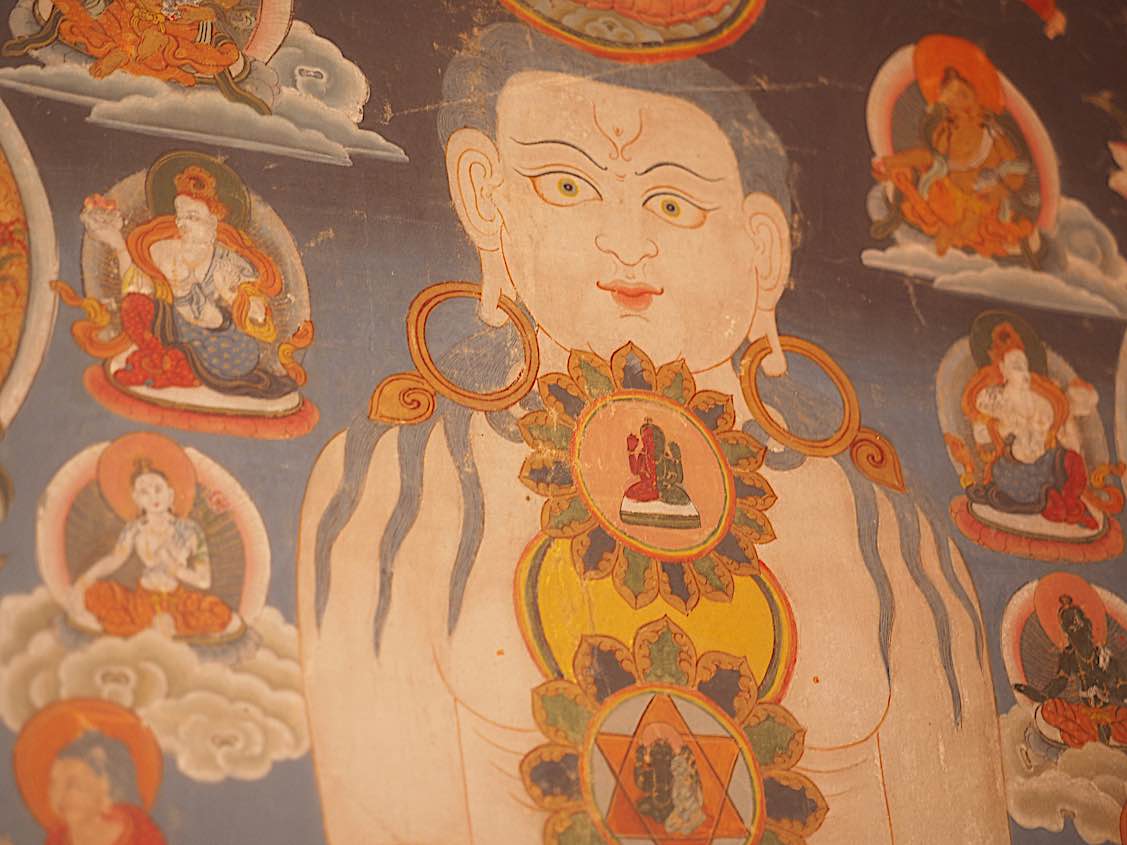Transcendental Meditation: insight and stress relief. Buddha: “Our life is shaped by our mind; we become what we think.”
Twenty-six centuries ago (or so) Buddha is attributed with saying (see note):
“Our life is shaped by our mind; we become what we think.”
Seven-hundred years later, philosopher and Roman Emperor Marcus Aurelius wrote, “The Happiness of Your Life Depends On the Quality of Your Thoughts.” (around 177AD)
This universal theme had its roots in human experience, and is often emphasized in Transcendental Meditation (TM) in both Buddhist and Vedic forms. Traditionally, repetitive mantra chanting, visualization and mindfulness help calm the mind, and this ultimately leads to wisdom and insights. And, along the way, according to numerous research studies, TM de-stresses our busy minds, and brings associated health benefits.
NOTE: This is from Easwaran’s translation of Dhammapada verse 1 has “Our life is shaped by our mind; we become what we think.” We originally cited the quote “The mind is everything. What you think you become”, which is commonly attributed to Buddha, but there no direct Sutra references (hence we removed it). We include it to make a quick point. Another teacher, non-Buddhist, Sri Sri Ravi Shankar, said, “The quality of your life depends on the quality of your mind.”
Special feature Sally Keys
For those under stress, practicing Buddhist meditation techniques should be a go-to option because of the positive effects they have on mind and body. One of these techniques is transcendental meditation, whose roots are in ancient Vedic tradition of India, and has been a method of natural healthcare and self-growth dating back thousands of years.

The renunciates of the Shankaracharya tradition preserved it as the ‘royal path to unity,’ a description of the untapped vast mental resources lying underneath our conscious mind. Anyone seeking a more profound experience and exceptional results should consider transcendental meditation as it has strong evidence base in reducing anxiety, depression and lowering levels of the stress hormone cortisol, preventing adverse effects of stress on your body.
Effects of Transcendental Meditation
The ever-growing stress levels among individuals interfere with one’s focus on handling tasks, leading to low productivity. Additionally, anxiety affects the overall health of an individual. Since transcendental meditation helps restructure negative states by giving the body deep rest, it helps you deal with work-related stress triggers like commuting to unfamiliar workstations. Besides coping with stress, consistent meditation has other great benefits like reduction or intrusive thoughts, hyper-arousal, and trauma.

Evidence-Based Health Benefits
Studies reveal meditation reduces both psychological and physiologic response to stress triggers, therefore, preventing chronic stress. When levels of the stress hormone are high, you are likely to experience inflammation and a higher risk of other chronic health conditions like hypertension, autoimmune disorders, and increased absenteeism at work, alcohol and drug abuse. Regular practice of transcendental meditation reduces risk of cardiovascular disorder and death by 48%, according to a study by the American Heart Association.

Method is important Transcendental Meditation
Like many Buddhist mindfulness methods, this meditation is easy and an evidence-based approach to stress management. However, one needs the mantra often given by a teacher in sacred face-to-face position, depending on your motives, strength, weakness, spiritual, and material ambitions. For effective results, you will need to exercise meditation the correct way and make it a daily routine. The key is to recite the mantra in silence while focusing on your breathing pattern.
While everyone generates some form of stress, how you manage it, matters a lot. If left to pile up, anxiety contributes to prolonged health disorders resulting in the loss of a substantial amount of resources. Mindfulness meditation is inexpensive and modest and can be practiced anywhere, even at work to relieve built-up anxiety. You only need 20 minutes maximum to get your body in a deep sleep and release the tension.
Video with the simplest form of TM: repetition of OM —
2 thoughts on “Transcendental Meditation: insight and stress relief. Buddha: “Our life is shaped by our mind; we become what we think.””
Leave a Comment
More articles by this author
Search
Latest Features
Please support the "Spread the Dharma" mission as one of our heroic Dharma Supporting Members, or with a one-time donation.
Please Help Support the “Spread the Dharma” Mission!

Be a part of the noble mission as a supporting member or a patron, or a volunteer contributor of content.
The power of Dharma to help sentient beings, in part, lies in ensuring access to Buddha’s precious Dharma — the mission of Buddha Weekly. We can’t do it without you!
A non-profit association since 2007, Buddha Weekly published many feature articles, videos, and, podcasts. Please consider supporting the mission to preserve and “Spread the Dharma." Your support as either a patron or a supporting member helps defray the high costs of producing quality Dharma content. Thank you! Learn more here, or become one of our super karma heroes on Patreon.
Sally Keys
Author | Buddha Weekly
















Fake Buddha Quote:
https://fakebuddhaquotes.com/what-you-think-you-become/
Thank you we appreciate that. We added a note, partially based on your reference, and also to clarify the purpose of using this commonly attributed quote. Thanks again! In kindness, Lee. We changed the quote to say “attributed” and added this note: NOTE: Easwaran’s translation of Dhammapada verse 1 has “Our life is shaped by our mind; we become what we think.” The quote “The mind is everything. What you think you become” is commonly attributed to Buddha, but there no direct Sutra references. We include it to make a quick point. Another teacher, non-Buddhist, Sri Sri Ravi Shankar, said, “The quality of your life depends on the quality of your mind.”